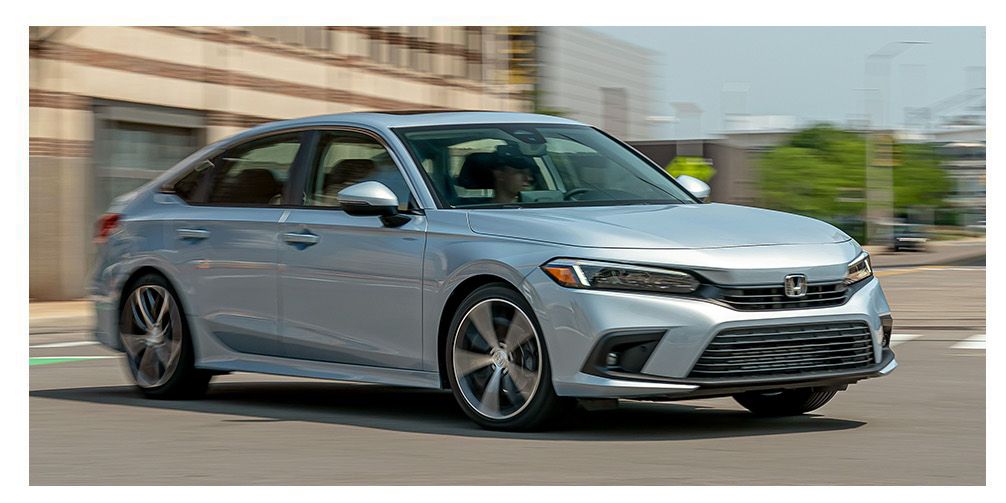Rigby5
Diamond Member
- Apr 23, 2017
- 31,994
- 10,783
glasses are plastic, and your full of itLike seat belts and airbags.You should tell GM, Ford, and all those other car manufacturers. I'm sure they would appreciate you letting them know all their engineers don't know what they are talking about. They will probably give you free cars for life for saving them all that money.If you want to discuss energy density, you should consider diesel electric freight trains. Those require serious energy density. Only a fool would think our currnt battery technology is as far as we will go with electric vehicles, and only an idiot would think we will switch to a new technology before it is able to meet the demand. Relax. Quit whining. It will be all right. We won't lose our means of transportation like you seem to fear.We already have diesel/electric ships and trucks, Electric power has already been proven to be more efficient than direct power by internal combustion. Why are you so afraid of progress? Do you think we will completely convert to battery powered electric before we have technology to match or better internal combustion? That's just silly.So, if renewable sources can't supply all our needs, then we will use coal, or gas, or dried cow dung if we have to. We will maintain a reliable energy source of one kind or another. It will just be better for us if we can do that with renewable sources sooner. Nobody wants or expects a complete conversion to renewables before that is possible. Quit whining.You should absolutely LOVE oil companies, since they are providing the fuel to generate electricity for EVs. Evs aren't going anywhere without the oil companies.You mean like we STILL DO with oil companies.
I would add many of those oil companies don't pay a penny in federal income taxes.
Fossil fuels don't generate electricity in my state.
We use water, wind, solar and a small nuclear facility.
We started shutting down our last coal fired plant in 2005. I'm sure it's closed by now.
We started building one of the nation's largest wind farms in the 90s.
The result?
We generate more electricity than we use so we sell the excess to other states for a profit. If you live in one of those states, you're welcome for the cheap and clean energy.
We also have the second lowest electric rates in the country.
So my state doesn't need or want fossil fuels to generate electricity.
Untrue anywhere in the US.
Coal is the #1 electricity producer in ALL US states and most of the world.
Many states just do not know how their electricity is produced because it is part of an out of state grid.
It is never going to be possible to use only renewable resources any place in the world except on ocean shores, near high thermal sources, or where one does not mind killing fish.
Going to electricity before electricity is renewable, only makes emissions much worse.
Nor does electricity allow for any reasonable totally renewable result eventually either, while bio fuel does.
So there is no point in going electrical.
It is inefficient.
Can you imagine trying to do ships, planes, or even EV trucks?
The would have no capacity to carry anything.
Batteries are way too heavy.
Because what you just claimed isn't true. Electric power is more efficient in very limited circumstances. Over short distances electric powered vehicles are superior. There is no doubt of that. However, once you get beyond a mile the advantage swings to the internal combustion engine. Currently a Formula One race car can travel 190 miles, at full performance, on a single tank of regular gasoline. Formula E, can only manage 55 miles. And, they have to use TWO cars to do it.
So, calculate out the energy density involved, and get back to us with your claim of EV superiority.
Only a fool would think they can defy the laws of physics. Battery technology, and range, is not significantly greater than it was 100 years ago. Gasoline is the most energy dense fuel that normal people can acquire. A thimble full will propel a 3,000 pound car about 2 miles. No battery in the world can even come close.
The government is TELLING them to do it. If EV'S were so great, the government wouldn't need to force you to use them
I hate airbags.
They are explosive, dangerous, and expensive.
If you wear glasses, they easily can cause blindness.
Permanent passive restraints make a lot more sense, like close dash or steering wheel padding.
So plastic shoved into your eyeball won't cause blindness?
{... During a collision, older-model auto airbags can deploy with such force that they can cause serious injuries to the eyes or even, in rare cases, blindness, say eye trauma specialists interviewed by WebMD. ...}

What Causes Eye Problems?
Get information on common eye and vision problems, such as conjunctivitis, retinal detachment, dry eyes, cataracts, and glaucoma.
Rethinking airbag safety: airbag injury causing bilateral blindness
...Abstract
A healthy 40-year-old man, restrained in the front passenger seat, suffered visually disabling blunt ocular trauma following spontaneous release of the passenger side air-bag module, during vehicular deceleration, without an automobile crash. Though the driver-side airbag was also released, the driver was unharmed. The passenger suffered bilateral hyphema, bilateral vitreous hemorrhage and suspected posterior scleral rupture in the left eye and also had an eyebrow laceration, from impact with the dashboard panel covering the air-bag module, which was detached by the force of airbag deployment. This is the first reported case from West Africa and the first case in which part of the airbag module detached to cause additional trauma. This report adds to the growing burden of evidence world-wide, for a review of the safety aspects of the automobile airbag. This case clearly illustrates that although airbags reduce mortality, they carry a high risk of ocular morbidity, even with seat belt restraint. ...}
Rethinking airbag safety: airbag injury causing bilateral blindness - PubMed
A healthy 40-year-old man, restrained in the front passenger seat, suffered visually disabling blunt ocular trauma following spontaneous release of the passenger side air-bag module, during vehicular deceleration, without an automobile crash. Though the driver-side airbag was also released, the...








